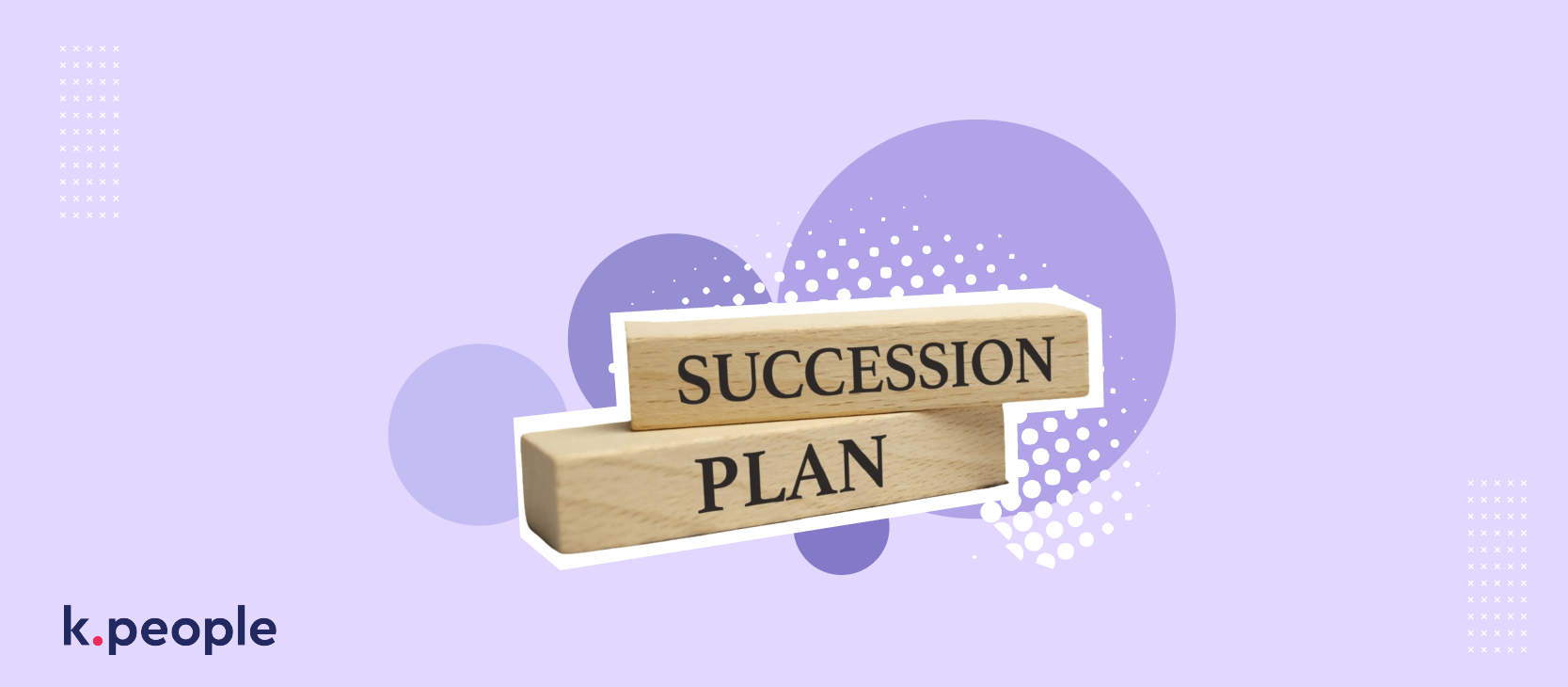Do you know what succession planning is and why it is important for any business? Succession planning is a critical procedure for your HR, and it affects many different parties, such as company owners, employees, and shareholders. Since every year is more challenging because of the unpredictable changes in work-life, HRMS (Human Resources Management System) can become your ally in succession planning. An HRMS can actually help organizations be prepared for the future. If you want to get practical advice on how to maximize HRMS’ impact, continue reading.
Before we start, explore the world of k.people, the brand-new HRMS software especially designed for small to medium-sized businesses by HR professionals, and simplify your HR processes today.

But first, let’s define Succession Planning
Succession planning might be a long and tough process. For small organizations and family-owned companies, it often means training the next generation to take over the business in the future. But in the case of a larger company, succession planning may mean training mid-level employees to replace higher-level positions.
Understanding how vital Succession Planning is for an organization
Succession planning is essential to ensuring that a company always has the right leaders and that, in case of emergency, everything flows smoothly. To accomplish this, you should identify the critical job positions in your organization and build a pipeline of potential inheritors.

Succession planning also helps companies preserve a competitive advantage as they keep their talent pool strong and train their employees for future leadership roles. Moreover, it can improve employee confidence and engagement, as employees are more likely to stay with a company that invests in them. It’s as simple as that.
How can HRMS contribute to succession planning?
HRMS can help businesses organize and streamline their succession planning processes, making it easier and more efficient to identify, develop, and track potential successors. With an HRMS platform, companies can:
- Automatically identify and monitor employee data and skills.
- Pinpoint potential successors for leading job positions.
- Create and track employee learning and development programs.
- Enable regular performance evaluations and feedback sessions.
- Monitor employee progress and provide ongoing coaching and mentoring.
Tips for Maximizing the Impact of HRMS in Succession Planning
- Integrate HRMS with other HR processes, such as performance management to support talent development, compensation and benefits administration to manage and update pay scales, training and development to track employee training history, time and attendance tracking, and employee engagement and satisfaction surveys to gain insights into employee well-being.
- Ensure HRMS data is accurate and up to date by implementing a data governance policy and providing regular training on how to enter and update data correctly in HRMS. In order to achieve this, it is also highly recommended that you establish a frequent data review and verification process to ensure data accuracy and enable self-service portals for employees to update their own information, such as personal and contact details.
- Encourage open communication between HR and employees, providing clear communication channels, such as email, suggestion boxes, employee surveys and an open-door policy, where employees feel welcome to approach HR with questions and concerns. Keep in mind that listening to employee feedback and responding in a transparent way is also very important to maintain open communication.
- Clearly set succession planning goals and objectives and regularly evaluate them and adjust HRMS to meet your changing business needs. Use HRMS’ data analytics and reporting capabilities to track progress and measure the success and ROI of HRMS in supporting succession planning.
- Support employees in learning how to use HRMS effectively and involve them in the HRMS implementation and training process. Speaking about training, utilize HRMS to identify and address skills and knowledge gaps in your workforce.

In a nutshell, succession planning is essential for any business, and HRMS can assist you in simplifying and maximizing your efforts. By integrating HRMS with other HR processes, ensuring data accuracy, encouraging open communication, and involving employees in the HRMS implementation and training process, you can ensure that your succession planning efforts are successful. Don’t miss out on the k.people HRMS 60-day free trial, with easy set-up and without a credit card, and simplify your HR procedures within one platform.










